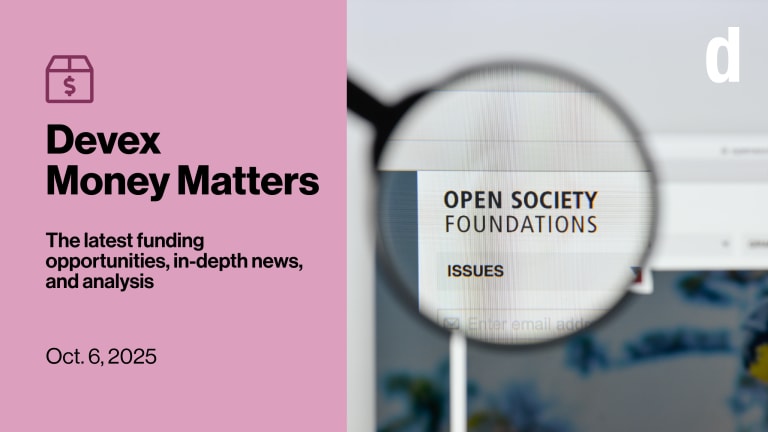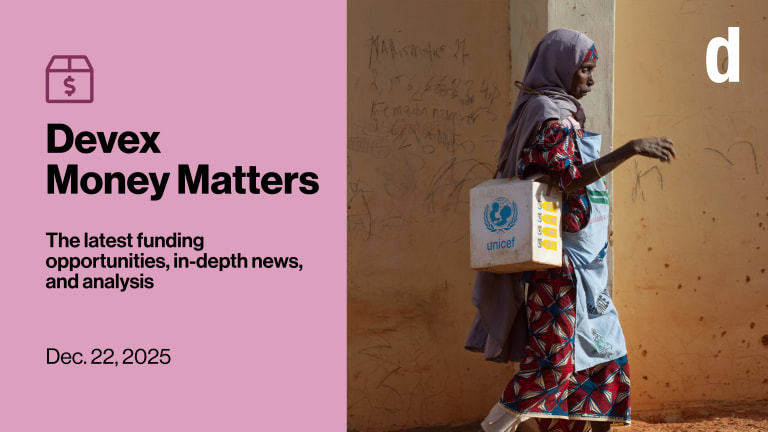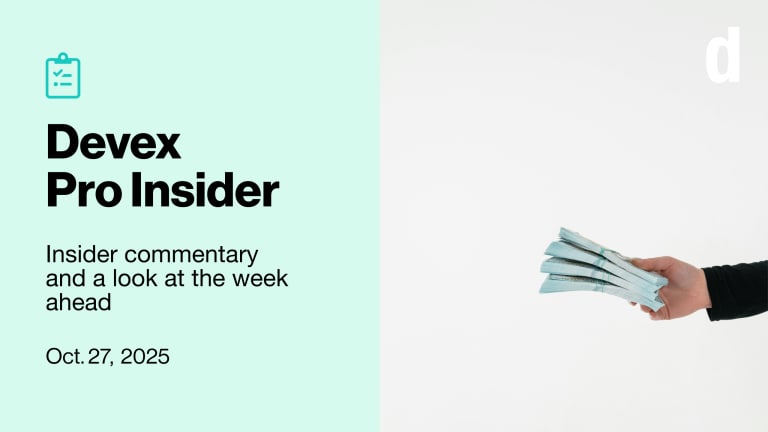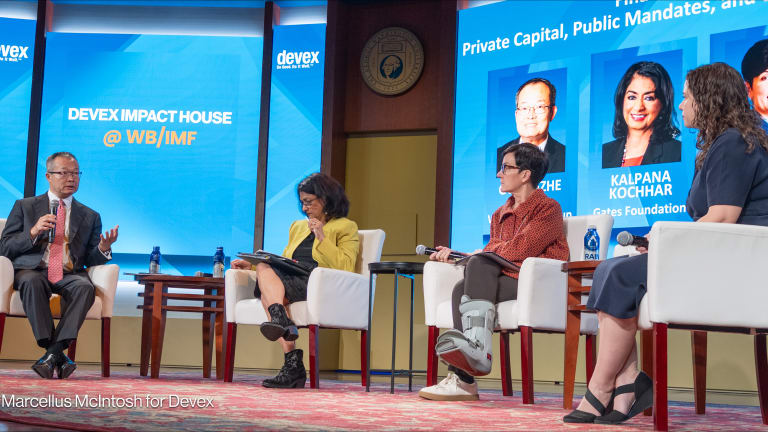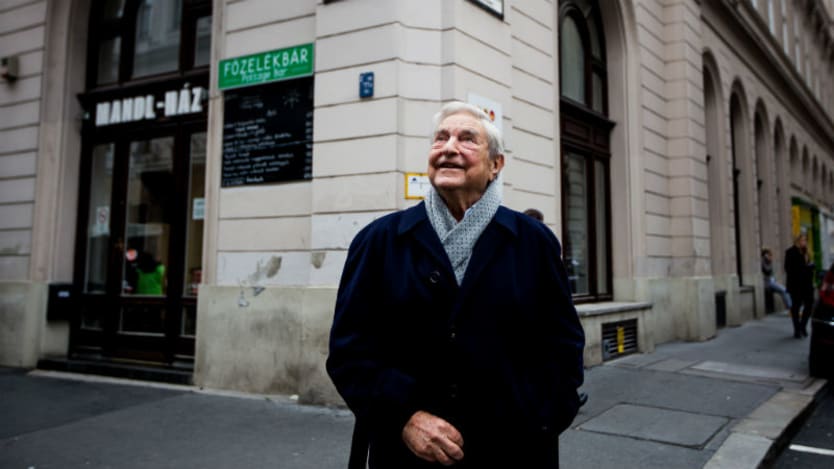
The U.K. Department for International Development announces new investments in its development finance institution, food security leaders call for war on a devastating crop pest, and billionaire investor George Soros hands over his fortune to an instant development behemoth. This week in development.
George Soros has handed over nearly $18 billion to the Open Society Foundations, the philanthropy he founded. The transfer, which was long anticipated, instantly vaults Open Society Foundations into the upper echelons of philanthropic organizations, second in size only to the Bill & Melinda Gates Foundation in the United States, according to the Wall Street Journal. OSF operates through a global network of organizations focused on issues ranging from education, to media, to health. Their common thread is a commitment to “vibrant and tolerant democracies whose governments are accountable to their citizens,” according to the foundation’s website. Soros — and his foundation — have faced frequent backlash from nationalist governments who accuse the billionaire of foreign meddling in domestic politics. Soros is also a target of some U.S. conservatives, who accuse him of supporting “dogmatic, aggressive left-wing groups that disrupt liberal democracy.” In its three decades of operation, OSF has so far spent about $14 billion, according to the foundation’s website.
Steve Bannon, former White House chief strategist and founder of the media outlet Breitbart, which has published inflammatory allegations about Soros and his foundation’s activities, will speak on “countering violent extremism” in Washington, D.C., next Monday. Bannon will participate in a Hudson Institute event at the Ronald Reagan Building, which also houses the U.S. Agency for International Development.
Global agriculture and food security leaders are gathered in Des Moines, Iowa, this week to celebrate World Food Prize recipient and African Development Bank President Akinwumi Adesina, as well as to plot the course of agricultural development efforts around the world. The Borlaug Dialogue — named in honor of “green revolution” agronomist Norman Borlaug — has given rise to a number of announcements. The AfDB launched two new initiatives, one aimed at transforming the African savannah, drawing on lessons from Latin America, and another focused on scaling technologies for African agriculture, in partnership with the Gates Foundation, World Bank, Rockefeller Foundation, and AGRA. USAID Administrator Mark Green announced two new public-private partnerships, one on getting smallholder farmers better seeds and another on unlocking markets and finance in the coffee industry. Green joined others in calling for a campaign to combat the Fall Armyworm, “a devastating crop pest that threatens to create a new humanitarian crisis in Africa.”
The World Bank and International Monetary Fund’s 2017 Annual Meetings concluded this weekend, culminating in a statement from the bank’s development committee on Saturday evening about the direction they hope the institution will take. A key sticking point for these meetings was around whether or not the bank’s shareholders would approve a plan to grant the institution more capital. The United States — in comments from Treasury Secretary Steven Mnuchin — has said it harbors reservations about giving the bank more resources as long as it continues to lend to large economies, including China. The development committee — made up of finance ministers from World Bank shareholder countries — set itself a deadline of the spring meetings in April 2018 to decide on this and other questions about how to position the bank for success in a changing geoeconomic landscape.
The Women Entrepreneurs Finance Initiative — known as “We-Fi” to some and as the “Ivanka Fund” to others — launched officially during the annual meetings. The facility has raised $350 million, including $50 million from the U.S., in five months and has just issued its first call for proposals. This week U.S. Senator Ben Cardin argued in a letter to Secretary Mnuchin that Ivanka Trump — special advisor to the president and first daughter, who played a key role in fundraising for the facility — should sever ties with We-Fi. Cardin said he worries that Trump’s stake in a global clothing brand could create conflicts of interest with the financing facility she helped to create.
The U.K. Department for International Development will invest an average of 620 million British pounds ($815 million) per year in its development finance institution, the CDC, until 2020, with the option to increase the average investment to 703 million pounds ($925 million) per year, the Secretary of State for International Development Priti Patel announced at the World Bank on October 16. The new investment kicks off the CDC’s new strategy, through which it will invest 20 percent of its capital in higher risk ventures, with a lower guaranteed return on investment, through its impact accelerator and new impact bonds, while also increasing its presence in recipient countries. With the increased investment, the U.K. now ranks fourth among G-20 countries for its use of development capital as a percentage of aid.
Join the Devex community and access more in-depth analysis, breaking news and business advice — and a host of other services — on international development, humanitarian aid and global health.





